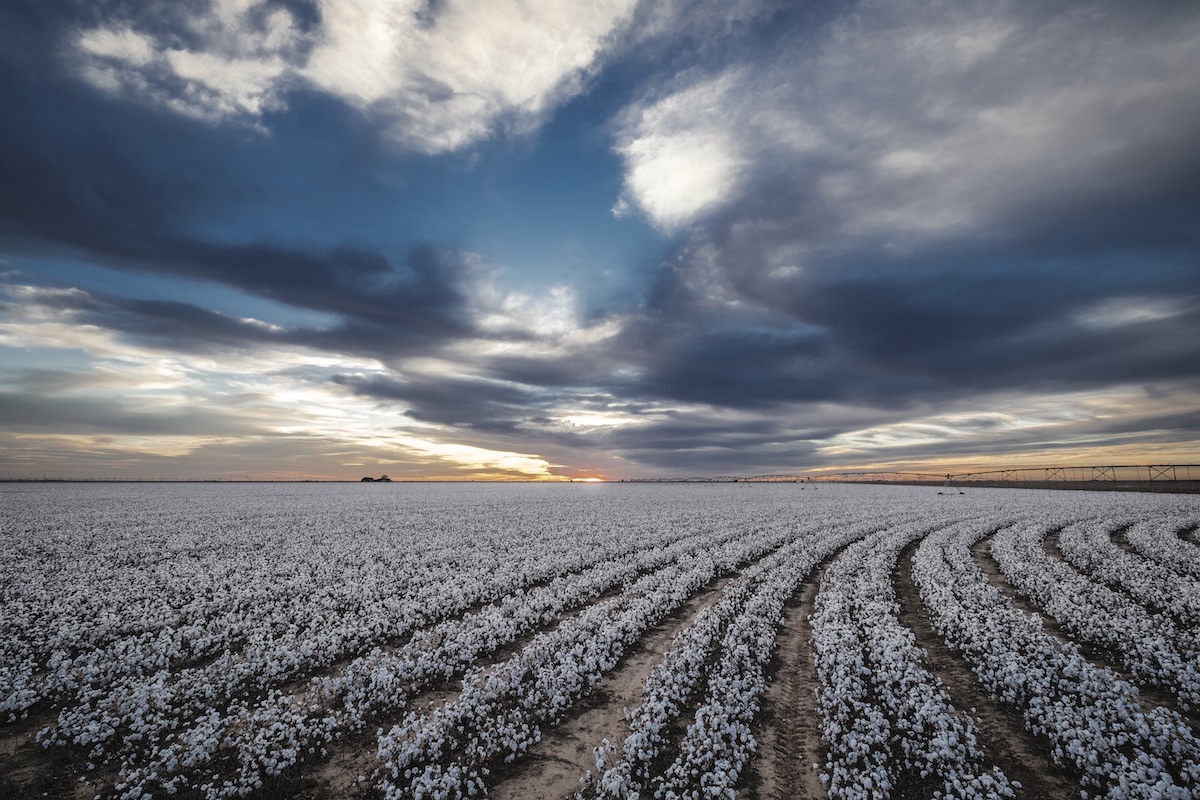Choosing strong seed quality leads to a healthy cotton crop

For Jonathan Mann of GBJ Mann Farms near Surrency, Georgia, seed quality is a key factor in choosing his cottonseed. Mann is the fourth generation of his family’s farm, which grows 1,400 acres of cotton, 800 acres of peanuts, a few acres of pecans and also has four poultry houses.
“For us, planting conditions were optimal when we started putting our cottonseed in the ground,” said Mann. “But after a week or two, things started to turn very dry. And when it did, conditions became tough, and that’s when we really relied on the seed quality in the Stoneville® varieties we planted.”
Mann said many farmers in the area who chose other cottonseed brands have either had to replant, or have chosen not to replant and let those acres remain idle, resulting in a lost crop. “Stoneville has really shined in our fields this year,” he said. “Where we planted Stoneville cotton seed, we’ve had great early season vigor, which has led to strong, even emergence and no standing cotton losses.”
The Manns planted varieties including ST 5471GLTP, ST 5600B2XF and ST 6182GLT. “We have peace of mind knowing the varieties we plant are going to come up the first time,” Mann explained.
Having poor-quality seed not only impacts the grower’s ability to get a good cotton stand, but can impact the cotton plants’ ability to battle other stresses early in the season. Scott Asher, Ph.D., Eastern Region Agronomic Manager for BASF, explained that weak cotton plants are more susceptible to seedling disease, such as Rhizoctonia. “This disease has been prevalent in the Southeast this year. Additionally, a weak cotton plant can also have a higher likelihood of having a negative response from preemergence herbicides and limits the ability of the cotton seedlings to recover from damage from thrips”.
Thrips were an issue this planting season for Cody Rhodes of Sirmon Farms in Daphne, Alabama, which is about 10 minutes from the Gulf of Mexico. Sirmon Farms has about 4,500 acres of cotton, corn, sweet potatoes, red potatoes, peanuts and hemp. “Seed quality means a lot to us because we grow skip-row cotton,” said Rhodes. “With skip row, we’re already cutting our seed population by a third, and we’re battling high humidity and disease, so we rely on seed quality and early-season vigor to get that seed up and out of the ground.”
Rhodes said Stoneville has been top tier this year compared with other cottonseed brands. “ST 5471GLTP has really shot up and come out of the ground quick. The cost of seed is high, and we want to get the best return on our investment. We’ve been really happy with Stoneville’s seed quality this year and plan to use more in the future.”
Stoneville seed quality gets put to the test
“Only after each lot is completely tested and evaluated will we release and ship our high-quality cottonseed to our valued customers,” said Jeff Brehmer, Manager of Commercial Seeds Production for BASF. “We take many steps to sort out the very best seed, testing and monitoring all varieties to ensure that we’re getting consistent quality, regardless of where that seed was grown or where it was processed.”
With Stoneville varieties, growers can feel assured they are planting a high-quality germinating seed that will establish an excellent stand to help maximize their yield potential. “Having high-quality seed coupled with a variety that emerges quickly, has early-season vigor that can handle early-season stresses, increases the opportunity for a strong finish come harvest time,” adds Asher.
To learn more about seed quality and Stoneville, reach out to your BASF representative or visit Stoneville.com.
About BASF’s Agricultural Solutions division
With a rapidly growing population, the world is increasingly dependent on our ability to develop and maintain sustainable agriculture and healthy environments. Working with farmers, agricultural professionals, pest management experts and others, it is our role to help make this possible. That’s why we invest in a strong R&D pipeline and broad portfolio, including seeds and traits, chemical and biological crop protection, soil management, plant health, pest control and digital farming. With expert teams in the lab, field, office and in production, we connect innovative thinking and down-to-earth action to create real world ideas that work – for farmers, society and the planet. In 2018, our division generated sales of €6.2 billion. For more information, please visit www.agriculture.basf.com or any of our social media channels.
About BASF
BASF Corporation, headquartered in Florham Park, New Jersey, is the North American affiliate of BASF SE, Ludwigshafen, Germany. BASF has more than 18,200 employees in North America and had sales of $17.9 billion in 2017. For more information about BASF’s North American operations, visit www.basf.com.
At BASF, we create chemistry for a sustainable future. We combine economic success with environmental protection and social responsibility. The more than 115,000 employees in the BASF Group work on contributing to the success of our customers in nearly all sectors and almost every country in the world. Our portfolio is organized into six segments: Chemicals, Materials, Industrial Solutions, Surface Technologies, Nutrition & Care and Agricultural Solutions. BASF generated sales of more than €60 billion in 2017. BASF shares are traded on the stock exchanges in Frankfurt (BAS), London (BFA) and Zurich (BAS). Further information at www.basf.com.
Always read and follow label directions. Stoneville is a registered trademark of BASF.
© 2019 BASF Corporation. All rights reserved.
